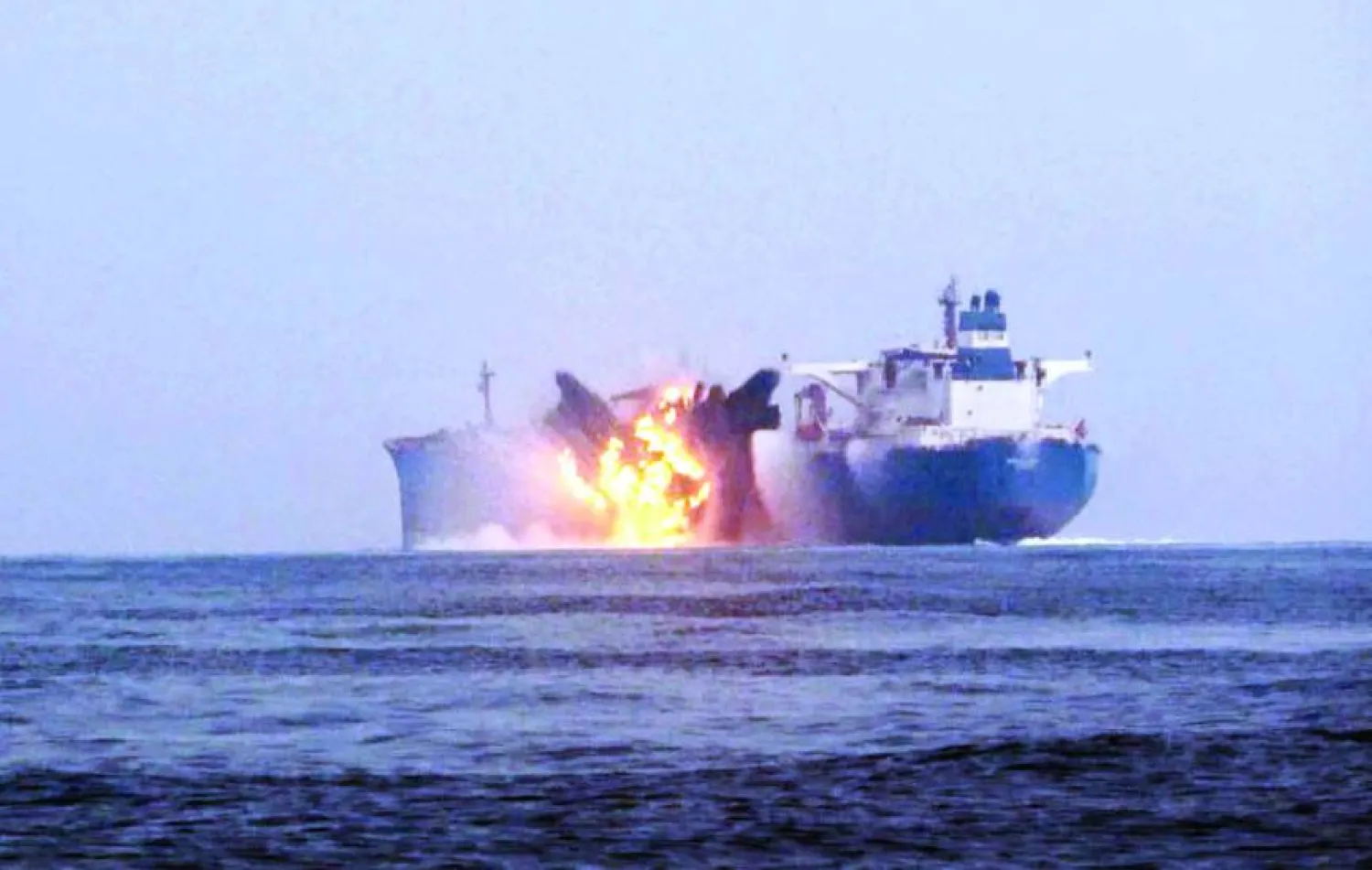Yemen's Houthi militants targeted a ship traveling through the narrow Bab el-Mandeb Strait off the Red Sea on Monday, though it escaped undamaged, authorities said.
The attack ended an 18-day lull in reported assaults attributed to the Houthis, who have been attacking ships traveling through the Red Sea corridor for nearly a year now over the Israel-Hamas war raging in the Gaza Strip. The violence has disrupted international shipping through the region, once valued at $1 trillion in goods annually.
The vessel passing through the Bab el-Mandeb Strait, which separates the Red Sea from the Gulf of Aden and the Arabian Peninsula from East Africa, reported the attack, the British military's United Kingdom Maritime Trade Operations center said.
The ship's captain reported two explosions near the ship, though “the vessel and all crew are reported as safe,” the UKMTO added.
The private security firm Ambrey also described the attack as involving “two close proximity explosions.” It said the vessel wasn't transmitting its position at the time, and it had a private armed security force on board, which many ships have chosen to do amid the Houthi attacks, The Associated Press said.
Houthi military spokesman Brig. Gen. Yahya Saree claimed the attack late Monday night. He identified the ship as the Liberian-flagged bulk carrier Motaro and claimed without offering evidence the group hit the vessel. He also claimed two other unreported attacks in the Arabian Sea, but offered no evidence they took place.
The Iranian-backed Houthis routinely exaggerate their claims.
The last Houthi attack came Oct. 10, targeting the Liberian-flagged chemical tanker Olympic Spirit. It's unclear what led to the pause, which has happened multiple times in the Houthi campaign. On Oct. 17, the US military unleashed B-2 stealth bombers to target underground bunkers used by the militants.
The Houthis have targeted more than 90 merchant vessels with missiles and drones since the war in Gaza started in October last year. They seized one vessel and sank two in the campaign which also killed four sailors. Other missiles and drones have either been intercepted by a US-led coalition in the Red Sea or failed to reach their targets, which have included Western military vessels as well.
The militants maintain that they target ships linked to Israel, the US or the UK to force an end to Israel’s campaign against Hamas in Gaza. However, many of the ships attacked have little or no connection to the conflict, including some bound for Iran.
The Houthis have shot down multiple American MQ-9 Reaper drones as well.
Yemen's Houthis Target Ship in the Bab El-Mandeb Strait Off Red Sea

A handout screenshot of footage made available on 03 October 2024 by the Houthis media center shows flames and smoke rising from an explosion at the British oil ship Cordelia Moon after an attack by an unmanned Houthi exploding boat in the Red Sea, 01 October 2024. EPA/HOUTHIS MEDIA CENTER / HANDOUT

Yemen's Houthis Target Ship in the Bab El-Mandeb Strait Off Red Sea

A handout screenshot of footage made available on 03 October 2024 by the Houthis media center shows flames and smoke rising from an explosion at the British oil ship Cordelia Moon after an attack by an unmanned Houthi exploding boat in the Red Sea, 01 October 2024. EPA/HOUTHIS MEDIA CENTER / HANDOUT
لم تشترك بعد
انشئ حساباً خاصاً بك لتحصل على أخبار مخصصة لك ولتتمتع بخاصية حفظ المقالات وتتلقى نشراتنا البريدية المتنوعة







